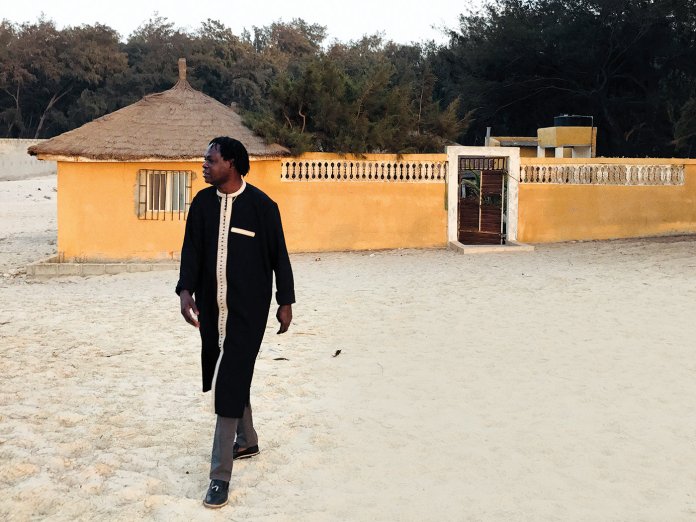His rich, golden voice and music that hovers deftly between tradition and electronic blues has made Baaba Maal one of Africa’s most beloved and critically acclaimed musicians. With his first new album for seven years and a music festival to discuss, Maal invites Uncut to a rare audience in his hometown, Podor.
DECEMBER 7, 2022, Senegal. Driving after dark from the sleek, futuristic new airport on the outskirts of the capital, Dakar, we pass barbers and bars still trading in the nighttime heat, oases of light between baobab trees. We’re on our way to the nearby coastal town of Toubab Dialaw, to pay our respects to one of African music’s greatest names, Baaba Maal. Maal has invited Uncut to attend Blues Du Fleuve, a major African music festival, which he has curated since 2005 in his remote hometown, Podor, a day’s drive north by the River Senegal.
Maal is part of the wave of musicians who took African music to a global platform during the 1980s. Then as now, his music has several elements at its heart: his keening, ecstatic voice, mesmeric acoustic guitar playing and dervish dancing.
You can spot Maal’s home by the queue of people waiting patiently outside. Instead of music fans, Maal’s exalted status here is such that he gets supplicants hoping for an audience – like a president or a priest. “He’s a big personality in Senegal,” Alioune Diouf, his drummer of 33 years, tells Uncut. “That’s why he’s involved in all the things that people need. In Senegal, I don’t think that Baaba has an enemy. Everywhere you go, Senegalese complain a lot if bad things are done, but if Baaba uses his power, they calm down. African presidents and religious leaders give him the same respect. He knows the responsibility he has – people trust their futures to him. That’s why Baaba don’t sleep!”
Maal’s quest to explore musical boundaries has led to collaborations with Eno, Peter Gabriel and Damon Albarn’s Africa Express collective, contributing songs to Ridley Scott’s Black Hawk Down and Martin Scorsese’s The Last Temptation Of Christ while deploying genres from reggae to electronica. More recently, his music has played a central role in the soundtracks for both Black Panther films.
As well as the upcoming Blues Du Fleuve festival, Maal also has his first album in seven years to contend with – Being. As you would expect, this new album continues his lifelong interest in weaving West African traditions with contemporary electronic sounds. “I was crazy in my way, and [producer] Johan Karlberg was crazy in his way,” Maal says, as he reflects on sessions in Dakar, New York and London.
PICK UP THE NEW ISSUE OF UNCUT TO READ THE FULL STORY


